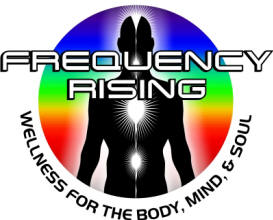Six years ago,
Americans began eating genetically engineered food. Surprised? That's
because no one told you. While other countries require mandatory
labeling of these food ingredients, our FDA has decided we don't need to
know.
What are Genetically Modified (GM) Foods?
A genetically modified organism (GMO) is created
by means that overcome natural boundaries. Combining
genes from different organisms is known as recombinant DNA technology,
and the resulting organism is said to be "genetically modified,"
"genetically engineered," or "transgenic." GM products (current or in
the pipeline) include medicines and vaccines, foods and food
ingredients, feeds, and fibers.
Genetic engineering involves crossing species which
could not cross in nature. For example, genes from a fish have
been inserted into strawberries and tomatoes. While the Food and Drug
Administration insists that foods produced by genetic engineering are
the same as foods from traditional breeding, their own scientists
reported that, "the processes of genetic engineering and traditional
breeding are different and... they lead to different risks." (1)
Why are companies
spending billions on this crazy idea? Because they want to own
copyrights on a genes that no one else 'owns' - so that they can make
billions of dollars from them.
In 2003, about 167 million acres (67.7
million hectares) grown by 7 million farmers in 18 countries were
planted with transgenic crops, the principal ones being herbicide- and
insecticide-resistant soybeans, corn, cotton, and canola.
In 2003, countries that grew 99% of
the global transgenic crops were the United States (63%), Argentina
(21%), Canada (6%), Brazil (4%), and China (4%), and South Africa (1%).
Although growth is expected to plateau in industrialized countries, it
is increasing in developing countries. The next decade will see
exponential progress in GM product development as researchers gain
increasing and unprecedented access to genomic resources that are
applicable to organisms beyond the scope of individual projects.
RISKS? WITH FOOD???
Don't believe the people who say there is no evidence of the harm they do:
To give just a few examples:
1. Pesticides are now going to be INSIDE the food you eat!
2.
The lifespan of ladybugs (ladybirds) was reduced to half when
they ate aphids that had fed on genetically altered potatoes in
Scotland, according to a London Times article (10/22/97) by Science
Editor, Nigel Hawkes. The ladybugs also laid fewer eggs. Note that the
ladybirds did not even eat the genetically modified food directly, as we
are doing now. They ate something ELSE that had eaten the GMOs. The
danger lived on in the food chain.
For more information.
3.
A recent TV Show by PBS (Public Broadcasting) on GMO's showed how
people have now created salmon that is several times bigger than normal
salmon, and grows faster. Thankfully, these salmon are currently being
farmed inland. However, to save a few dollars the salmon farm is
currently seeking permission to farm the salmon in fenced off sections
of the ocean. The problem is that if even a couple get away, they could
cause the extinction of salmon, because wild salmon prefer the larger
salmon because they assume they are better mates, and the resulting
offspring have much less chance (if any) of surviving and reproducing.
4. The danger to many
humans who are allergic to certain foods is guaranteed, because no one
will know what they are eating. For example, say someone is deathly
allergic to peanuts. A GMO may have a gene from a peanut in them. The
allergic person could get a reaction from eating ANYTHING that contained
the peanut gene. They wouldn't even know what caused it - because there
are no labeling laws about GMOs.
5. An article in
Spectrum Magazine described a Polish experiment which showed that
mice definitely prefer non GMO food to GMO food. And when forced to eat
GMO food, the mice began to display bizarre behavioral characteristics.
The sad thing is that
we don't even need GMOs to produce more food. There is already 2-4 times
enough food on the planet to feed everyone. And if people want to grow
food in their own area, the methods described in the book, "Secrets of
the Soil" will give them the nutritional abundance they seek. But
multinational chemical companies with billions of dollars to lose don't
want you to know this.
Monsanto's View On GM Crop Safety
A Monsanto official
told the New York Times, October 25, 1998, that the corporation should
not have to take responsibility for the safety of its food products.
"Monsanto should not have to vouch for the safety of biotech food," said Phil Angell, Monsanto's director of corporate communications.
"Our interest is in selling as much of it as possible. Assuring its safety is the FDA's job."
Oddly though, the FDA
only requests of firms that they conduct their own tests of new GM
products in what Vice President Quale back in 1992 referred to as a
"regulatory relief program." The FDA makes no review of those tests
unless voluntarily requested by the company producing the product.
Here's yet another example of our FDA
watching out for us... In 1994, the FDA approved Monsanto's rBGH, a
genetically produced growth hormone, for injection into dairy cows –
even though scientists warned the resulting increase of IGF-1 (a potent
chemical hormone) is linked to
400-500% higher risks of human breast, prostrate, and colon cancer.
Personal opinion: The silent introduction of
GMOs into our world is probably the most diabolical crime against
Americans, and the people of this planet, the world of man has ever
seen. Our government's elite have clearly made it known that we no
longer have any power or influence in the matters of our own lives.
They have decided to force feed me Genetically Altered food, poison
drugs, and toxic chemicals. Then they give me a the "Western Medicine"
model which almost certainly guarantees me no chance of
healing.
Please learn all you
can on this incredible threat to life as we know it, and do your bit to
stop it. Once the genie is out of the bag, their is no putting it
back in!!!
50 Reasons Why We Need to Oultaw GMOs
Links for More Information
The following web sites
offer basic information on GM crops and technologies as well as ethical
issues and provide up-to-date information on new developments and
controversies.





